Sushi rolls, not gender roles
Date:
Author: Samara Mortada
Dhaka, Bangladesh — During the 16 Days of Activism to End Gender-Based Violence, in December 2018, a one-of-a-kind “Gender Fair” was organized by Independent University Bangladesh faculty and students with the support of UN Women. Students creatively designed stalls with gender-friendly themes, such as “bin a stereotype”. One focused on self-defense for women, while another sold cookies and cupcakes decorated with gender-friendly messages, such as “Sushi rolls, not gender roles”.
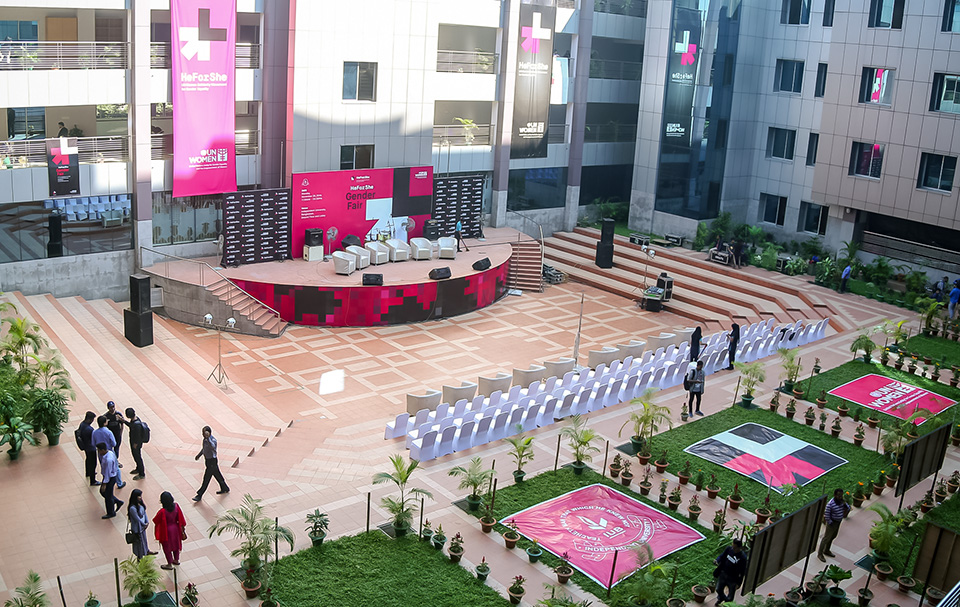
Students at another stall played audio files with excerpts of stories collected from survivors of sexual harassment. Meanwhile, at a stall entitled “Are you the power couple?” partners could take a quiz, with questions designed to determine who the dominant partner is; however, the final message in all quizzes was the same—that a powerful couple is one in which both partners respect each other, and no one tries to dominate.
Additionally, a student photography competition was organized on the theme of breaking gender stereotypes. The winning photos all showed men and women in roles that are unconventional in Bangladesh, such as men working in the kitchen and women in the driver’s seat of a car.
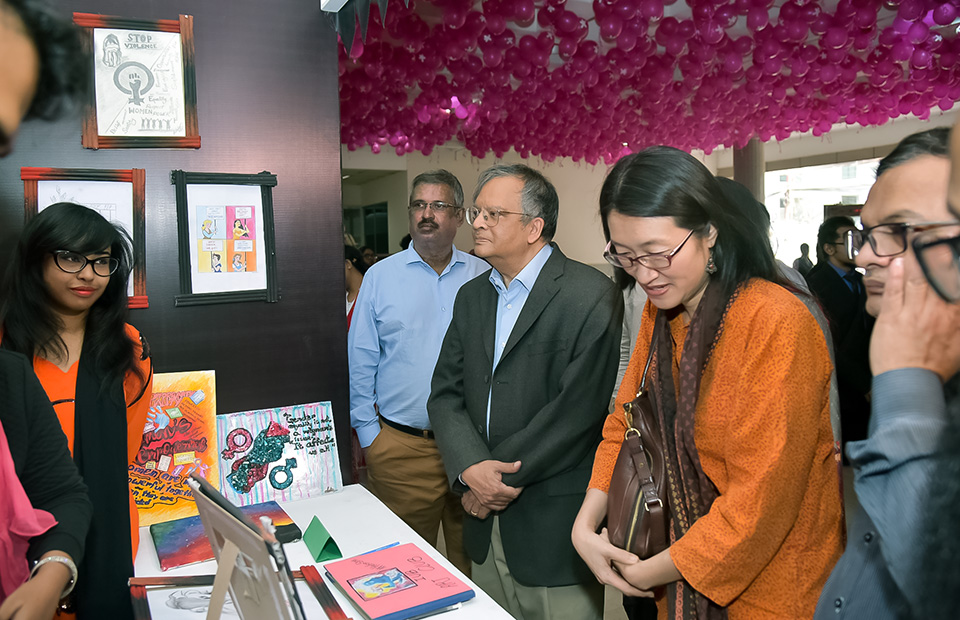
Another youth-based intervention was an essay competition, organized with Radio Shadhin, in which male students were asked to come up with solutions to an unfinished story about a sister (Julie) and a brother (Rehan), and how Rehan can take a stand to support Julie’s dreams and ambitions to be a pilot. The winner, Sagor Ahammad, was selected from among 15 finalists. In his essay, he explains to his parents the merit of his sister becoming a pilot, and how happy she is to be able to pursue her dreams. He will use the prize money to come up with a HeForShe campaign for his university.
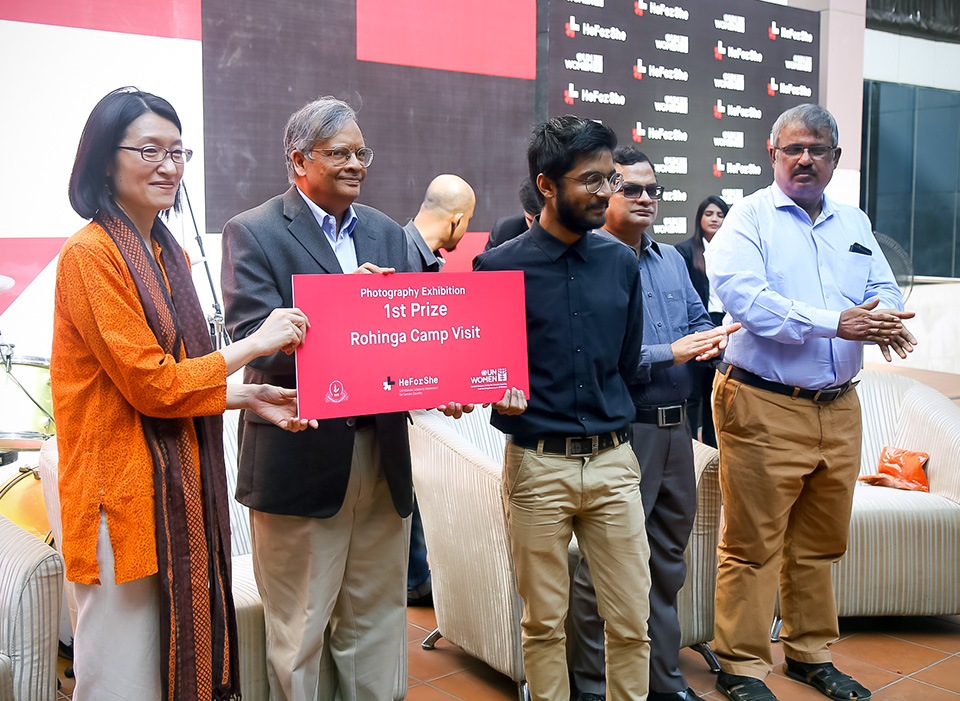
Another finalist wrote in his essay: “To the million Julies and other girls out there: you deserve to live and breathe free. We cannot shackle you anymore because a girl, when let free to live on her terms, can turn this world into a better place for both her family and the outer world. We can no longer decide what men and women should do, because these are shackles for both...”
The ultimate goal of these initiatives was to urge people across Bangladesh to stand up for women’s rights, regardless of their gender, and to think of ways they can commit to the HeForShe campaign and inspire others to do the same.
UN Women launched HeForShe in Bangladesh in the year 2015, following the global launch of the movement which calls on men from all walks of life to pledge to be gender advocates. In 2018, the HeForShe movement was taken further in Bangladesh through a range of activities with a wide array of men ranging from male staff at UN Women and other UN organizations, to local government officials, university students and radio listeners.
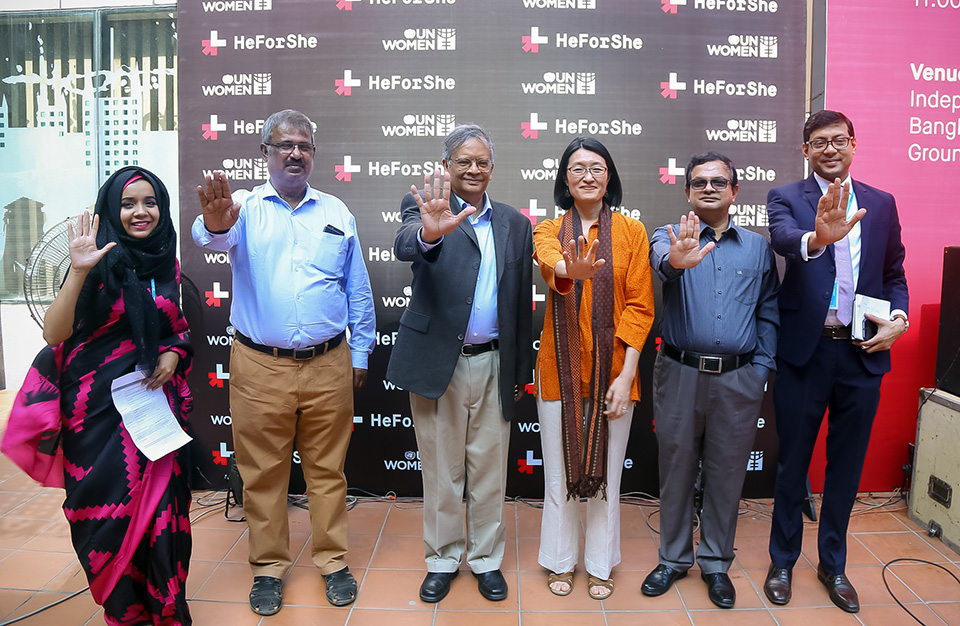
“I will help my wife at home by preparing the evenings snacks from now on,” said Tipu Sultan, a driver at UN Women office in Bangladesh, after joining a HeForShe event organized last August for male staff of UN Women.
With local government officials responsible for local development planning and budget allocation, UN Women introduced HeForShe in discussions on why local governments should provide more women-friendly services and invest in essential infrastructure such as child care facilities. Gender norms and stereotypes that influence policy decisions were discussed in these meetings facilitated by UN Women, and officials were asked to be a HeForShe advocate to improve the lives of women and girls in their community.
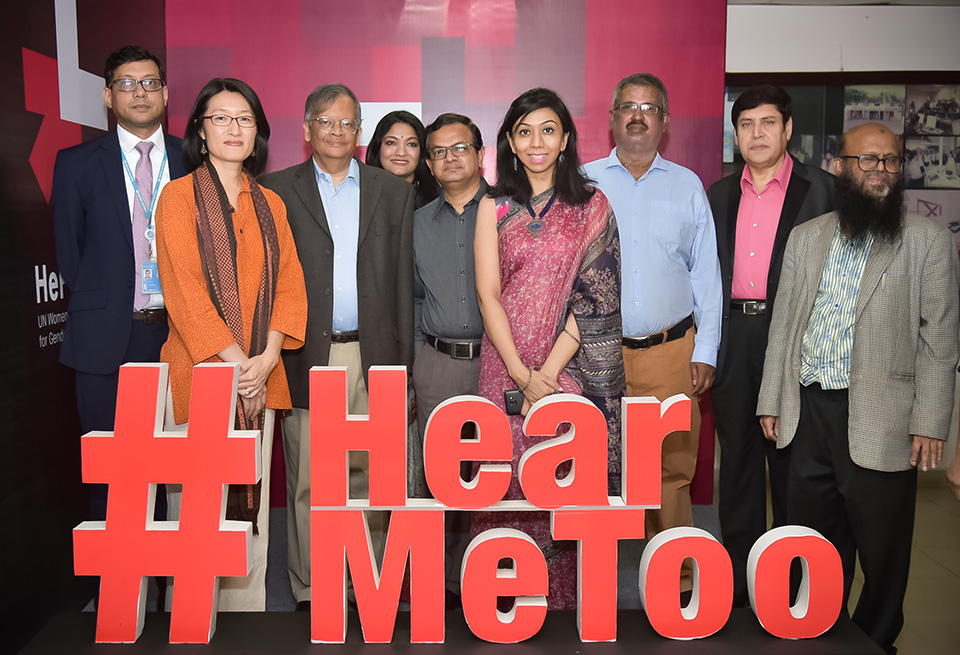
In a Union Parishad (a local government unit) in Rangpur, 300 kms to the north of Dhaka, the Union Parishad Chairman Al-Amin Pavel pledged: “I want to take initiative to support women. I will allocate BDT 200,000 (USD 2,384] for training for the women in my Union Parishad,” after joining the HeForShe meeting.
Reflecting on the series of activities, Shoko Ishikawa, Country Representative for UN Women Bangladesh said: “We need more men in Bangladesh to be involved in discussions on gender equality. Women alone cannot change social norms and break gender stereotypes. It requires a partnership with men and the transformation of men.”